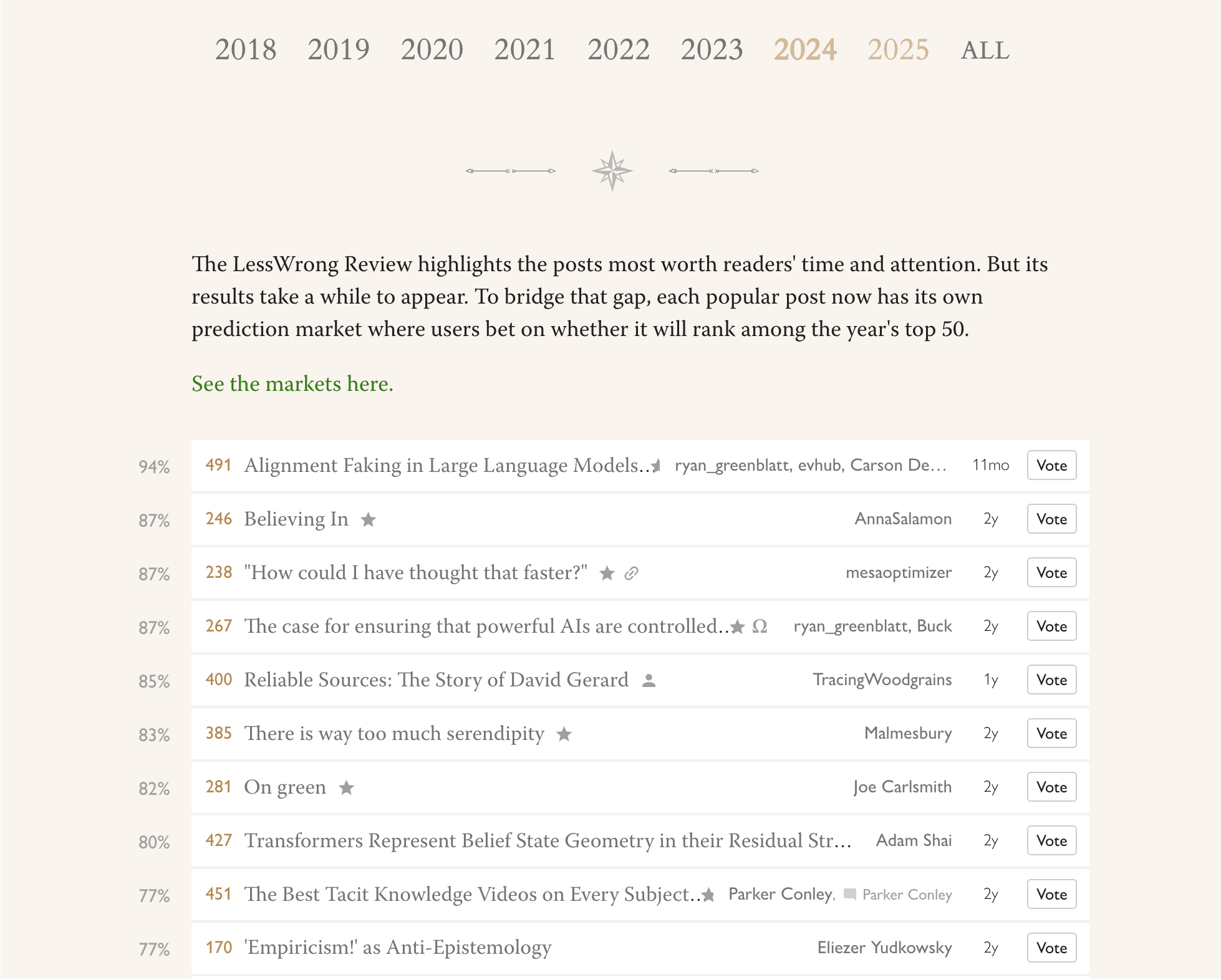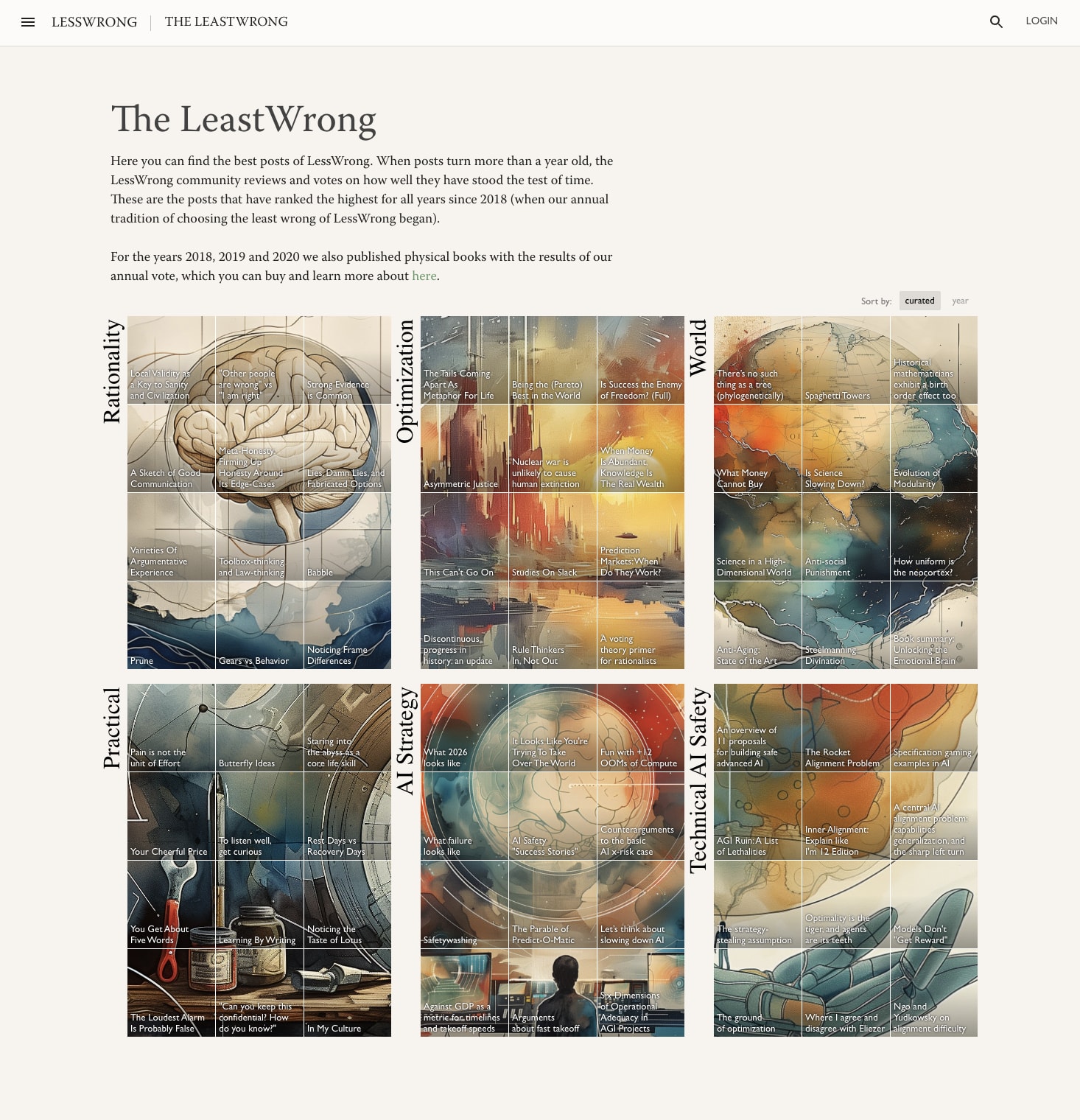LessWrong's (first) album: I Have Been A Good Bing
tl;dr: LessWrong released an album! Listen to it now on Spotify, YouTube, YouTube Music, or Apple Music. On April 1st 2024, the LessWrong team released an album using the then-most-recent AI music generation systems. All the music is fully AI-generated, and the lyrics are adapted (mostly by humans) from LessWrong posts (or other writing LessWrongers might be familiar with). Honestly, despite it starting out as an April fools joke, it's a really good album. We made probably 3,000-4,000 song generations to get the 15 we felt happy about, which I think works out to about 5-10 hours of work per song we used (including all the dead ends and things that never worked out). The album is called I Have Been A Good Bing. I think it is a pretty fun album and maybe you'd enjoy it if you listened to it! Some of my favourites are The Litany of Tarrrrrski, Half An Hour Before Dawn in San Francisco, and Prime Factorization. Click here to read the original text of the post published on April 1st. Rationality is Systematized Winning, so rationalists should win. We’ve tried saving the world from AI, but that’s really hard and we’ve had … mixed results. So let’s start with something that rationalists should find pretty easy: Becoming Cool! I don’t mean, just, like, riding a motorcycle and breaking hearts level of cool. I mean like the first kid in school to get a Tamagotchi, their dad runs the ice cream truck and gives you free ice cream and, sure, they ride a motorcycle. I mean that kind of feel-it-in-your-bones, I-might-explode-from-envy cool. The eleventh virtue is scholarship, so I hit the books search engine on this one. Apparently, the aspects of coolness are: 1. Confidence 2. Playing an instrument 3. Low average kinetic energy I’m afraid that (1) might mess with my calibration, and Lightcone is committed to moving quickly which rules out (3), so I guess that leaves (2). I don’t have time to learn an instrument, but my second-hand understanding of dath ilani culture i


Folks with 5k+ karma often have pretty interesting ideas, and I want to hear more of them. I am pretty into them trying to lower the activation energy required for them to post. Also, they’re unusually likely to develop ways of making non-slop AI writing
There’s also a matter of “standing”; I think that users who have contributed that much to the site should take some risky bets that cost LessWrong something and might payoff. To expand my model here: one of the moderators’ jobs, IMO, is to spare LW the cost of having to read bad stuff and downvote it to invisibility. If LW had to do all the filtering that moderators... (read more)